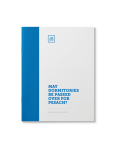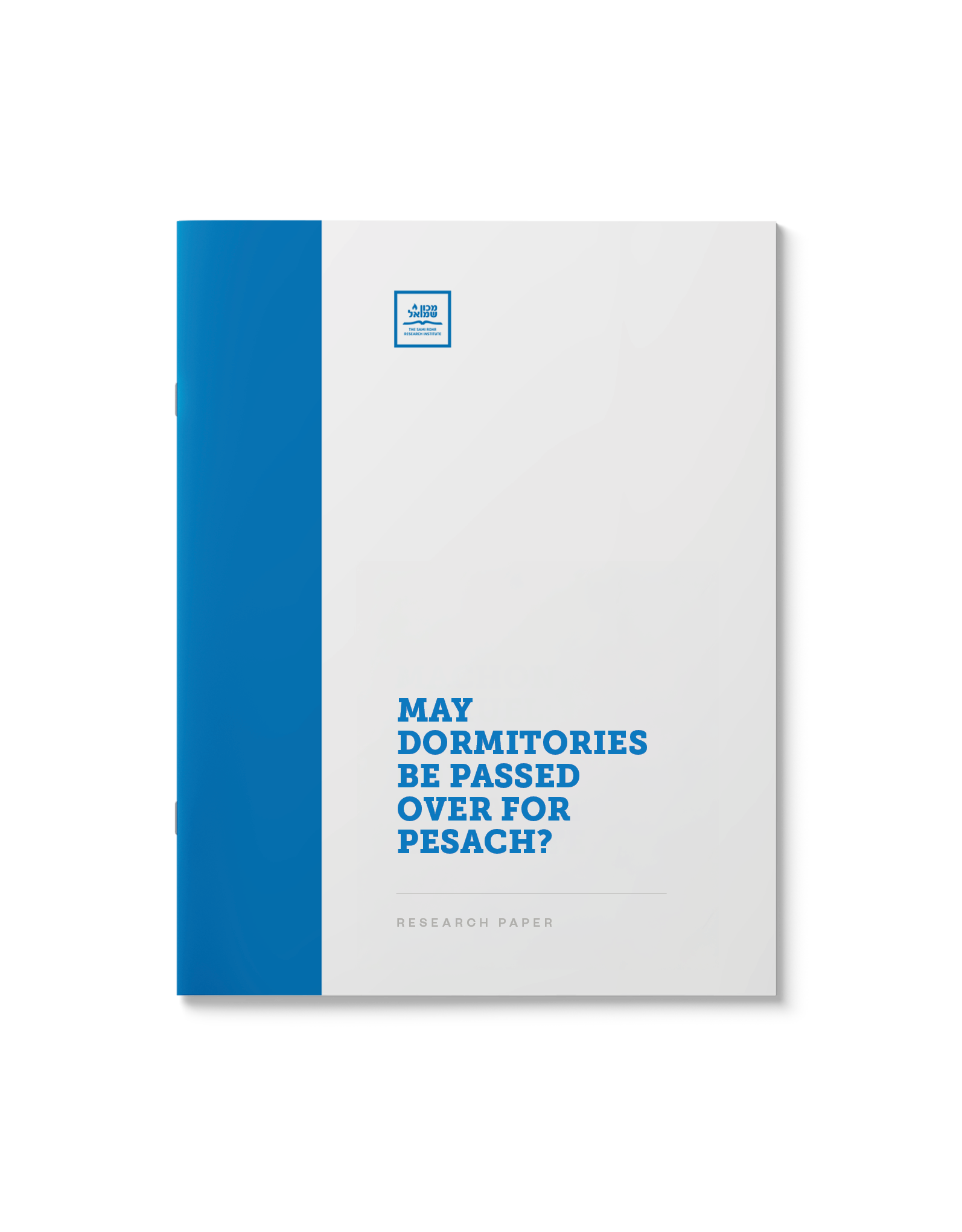May Dormitories be Passed Over for Pesach?
$39.00
The uncertain ownership that yeshivah students have of their dormitory rooms creates chaos when it comes to Pesach preparations. This paper clears the confusion. Must they do bedikas chametz? If yes, with or without a brachah? And do they also need to sell the chametz?
| Language | English |
|---|---|
| Paper Type | Research Paper |
| Pages | 7 |
Related Products
The water used to bake Matzah must be mayim shelanu—water that had been drawn in the evening and left to cool overnight. What is the halachic background for this requirement?
The mandate to rest on Shabbos also precludes having work done for us by gentiles, under specific conditions.
May one send Priority, Express or 2nd Day Mail on Friday? What about ordering through Amazon Prime?
What may one say (or dictate) when scheduling shipping without violating Shabbos by proxy?
Shabbos and Yom Tov are both so precious to the Jewish people that many Jews welcome them in early. How does this fit in with the prohibition of adding to a Mitzvah? What is the source of this practice? Study all the opinions and Halachic ramifications.
(Hebrew)
This item features a summary
of halachic opinion regarding the use of Shabbos elevators and prepaid trains
and busses. It also surveys the halachic definition of creating “fire,”
and how poskim define the use of electronic devices and appliances on
Shabbos. This package includes an index with 25 copies of original responsa.
בירור מקיף על מצות שופר ומשמעותם הפנימית של סוגי הקולות וסידורם לאור החסידות.
The shofar is an ancient musical instrument used to call the Jewish people together. It was blown to announce the new month, before the commencement of battle, and other occasions. It is still used on Rosh Hashanah and the closing of Yom Kippur to call the people to repentance. When was the shofar used for the first time?
Up, down, left, right, the lulav nanuim are a bewildering sight. This paper delves into the mysticism behind the historically venerated mitzvah of shaking lulav and esrog. What are its origins? What does it represent? How is it relevant today?
“If not for the last minute, nothing would get done.”
The Mishna (Avot 5:6) lists a number of unique items created on that first Friday during Bein Ha-Shmashos (the twilight hour between shkia and tzeis hakochavim).
If our Shabbos observance — characterized by abstaining from creative labor — is to be a reflection of Hashem’s abstention from creation, why must we not engage in creative labor during Bein Ha-Shmashos?
Some fascinating perspectives culled from the Midrash, Kabalah and Chassidus.
One of the the central themes of Chanukah is Pirsumei Nisa, the public display and celebration of the holiday. Around the world, Menorah’s are kindled in Malls, at City Halls and all sorts of public places. May one recite the traditional blessing over the Chaukah lights if they are being lit in the city square and not in the privacy of one’s home or Shul?
Have you set up “Hey Siri!” on your iPhone yet? How about the Amazon Echo to obediently adjust your thermostat, turn on your lights and play your favorite music – all by the sound of your voice?
During the week this might be great, but what about on Shabbos? Do the laws proscribing creative activity extend to actions that result from our verbal expression? What if some technology was devised to act upon your thoughts?
Related: “An Uplifting Shabbos” and “Motion-Triggered Sensors”
This paper features a curricular overview of the mitzvah of experiencing Oneg Shabbos.
Shabbos is a day of physical delight and spiritual rejuvenation. Each of the Shabbos meals is designed with taste and splendor, which elevates the simple act of eating to being a Heavenly experience.
Of what mystical significance are the three halachically-mandated meals on Shabbos? How does Jewish mysticism transform our appreciation for the Shabbos in general, and our perception of the third Shabbos meal in particular?















